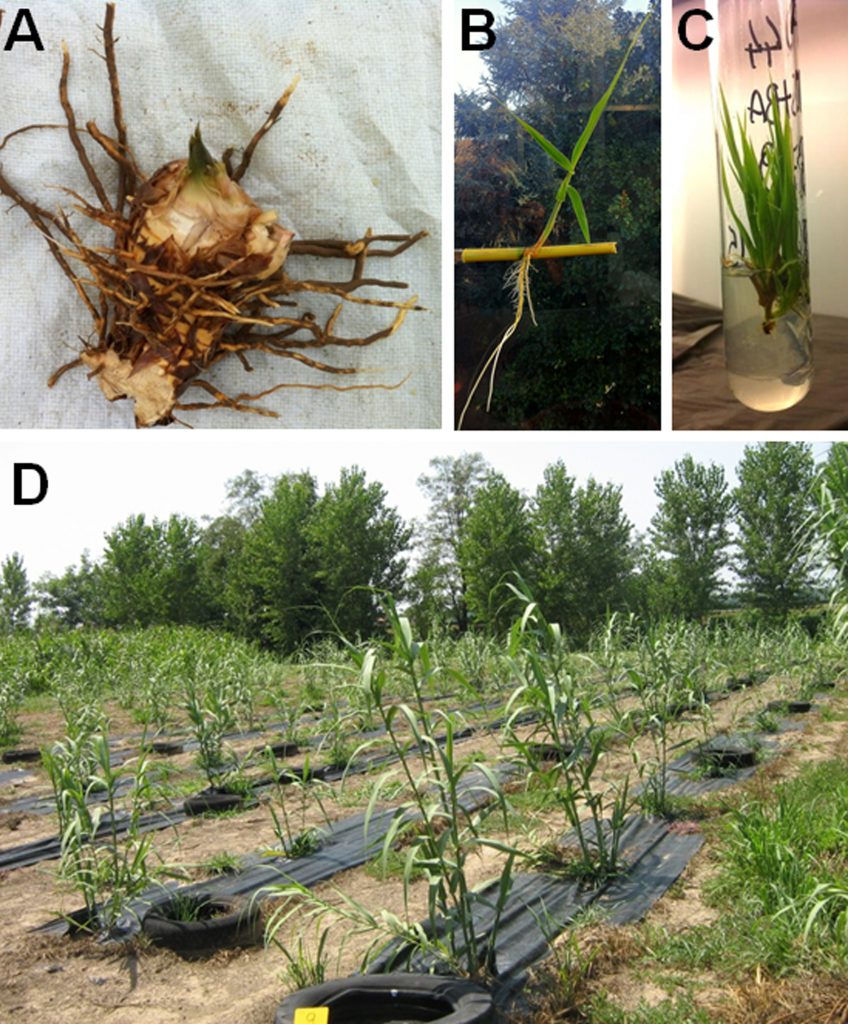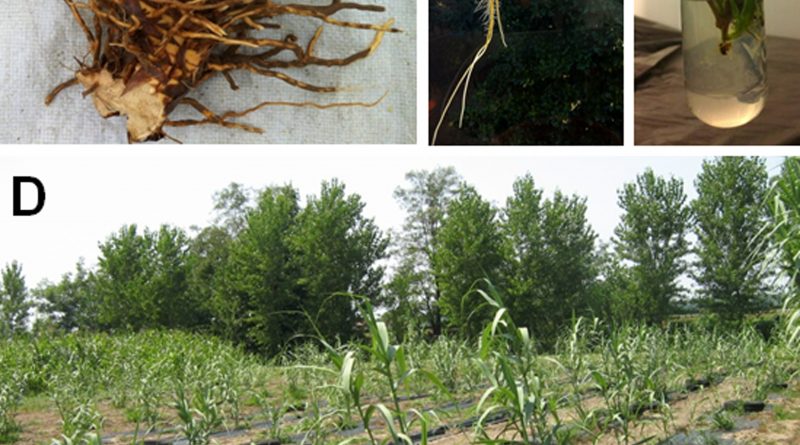SELECTED CLONES OF GIANT REED WITH HIGH PROPAGATION EFFICIENCY IN HYDROPONIC CULTIVATION
The recent growth of interest in Arundo donax L. (Giant reed) as an energy crop is due to its great vegetative vigor and high biomass productivity. This perennial rhizomatous plant is able to grow in a wide range of pedo-climatic conditions and it has been employed by man for a great number of purposes. This has promoted its worldwide diffusion, despite its sexual sterility. Field establishment represents the most expensive phase of the whole cultivation cycle, because of the high cost of the propagules. In this work three agamic propagation methods, rhizome transplantation, hydroponic cultivation, and in vitro propagation, were compared with the aim of improving their efficiency, and reducing costs and time required. We focused our attention on in vitro and hydroponic cultivation, finding clones characterized by a high response to these propagation methods. In vitro propagation is the most widespread technique adopted in the large-scale production of propagules; according to our results hydroponic cultivation also appears to be a valid and cheap propagation method, making it possible to obtain in about 2 months, vigorous plants ready to be transplanted into the field. We found a strong effect of the clone used on the success rate of the specific propagation method, suggesting that clonal selection could be particularly useful in improving the efficiency of propagation techniques, contributing to cost reduction.

REFERENCE TO A WEBSITE OR TO A LINK
T. Danelli, E. Cantaluppi, A. Tosca, E. Cassani, M. Landoni, S. Bosio, F. Adani, R. Pilu (2019) Influence of Clonal Variation on the Efficiency of Arundo donax Propagation Methods. Journal of Plant Growth Regulation. https://doi.org/10.1007/s00344-019-09947-4.

